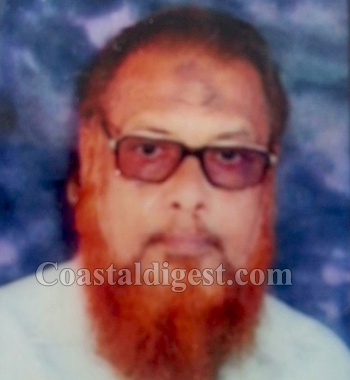Bengaluru, Jul 9: The total number of Covid-19 infections in Karnataka on Thursday breached the 30,000 mark as the state reported its biggest single-day spike of over 2,200 new cases and 17 related fatalities, taking the death toll to 486, the Health department said.
The day also saw a record 957 patients getting discharged after recovery, out of which 606 were from Bengaluru Urban.
Out of the 2,228 fresh cases reported on Thursday, a whopping 1,373 were from Bengaluru Urban alone.
The previous biggest single-day spike was recorded on July 8 with 2,062 cases.
As of July 9 evening, cumulatively 31,105 Covid-19 positive cases have been confirmed in the state, which includes 486 deaths and 12,833 discharges, the Health department said in its bulletin.
It said, out of 17,782 active cases, 17,325 patients are in isolation at designated hospitals and are stable, while 457 are in ICU.
"Death rate in Karnataka is 1.49 percent, while in Bengaluru is 1.28 percent, and our target is to bring it below 1 percent," Medical Education Minister K Sudhakar told reporters.
"The reason for spike in cases in Bengaluru and other places in recent days is because during the last four months of lockdown we had controlled it very well, but as we relaxed lockdown for economic activities we did not follow certain precautionary measures like distance among other things," he said.
The Minister also conceded that there were lapses on part of the government also in terms of tracing and tracking.
"It has to be improved especially in Bengaluru and we are taking steps in this regard."
Among the 17 dead seven were from Dharwad, two each from Hassan, Kalaburagi, Mysuru, and one each from Raichur, Uttara Kannada, Tumakuru and Davangere.
The deceased include 13 men and 4 women.
The dead are all either with a history of Severe Acute Respiratory Infection (SARI) or Influenza-like illness (ILI).
Out of 2,228 fresh cases today, contacts of the majority of the cases are still under tracing.
Among the districts where the new cases were reported, Bengaluru Urban accounted for 1,373, followed by Dakshina Kannada (167), Kalaburagi (85) and Dharwad (75).
Bengaluru urban district tops the list of positive cases, with a total of 13,882 infections, followed by Kalaburagi (1,901) and Dakshina Kannada 1,701.
Among discharges Bengaluru urban tops the list with total 2,834, followed by Kalabuagi (1,392) and Udupi (1,206).
A total of 7,79,209 samples were tested so far, out of which 20,028 were tested on Thursday alone.
So far 7,28,887 samples have been reported as negative, and of them 17,568 were reported negative today.






Comments
Innaa Lillahi Wa Innaa Ilaihi Rajivoon.
May the departed soul rest in peace. May Allah accept all his good deeds and forgive his sins. May Allah bless him with the bounties of blissful Jannat ul firdous. May Allah give sabr (patience) to his grieved family to bear with the loss of their dear one.
Heartfelt condolences.
In nah lillahi wa innah lillahi rajiwun. Allah wa taala Marhoom ko JANNAT UL FIRDOUS ataa karey. Aameen Aur relatives ko sabr dey.
Summa Aameen.
Inna lillahi va inna ilaihi rajivoon, may Allah forgive him and grant him jannath
Inna Lillahi Wa Innaa Ilaihi Raajioon.
May Allah Rabbul Aalameen make everything easy in qabar, Hereafter and grant him Jannathul Firdous.
inna lillahi va inna ilahi rajivoon , may allah forgive him and grant him jannath al firdaus.
Add new comment